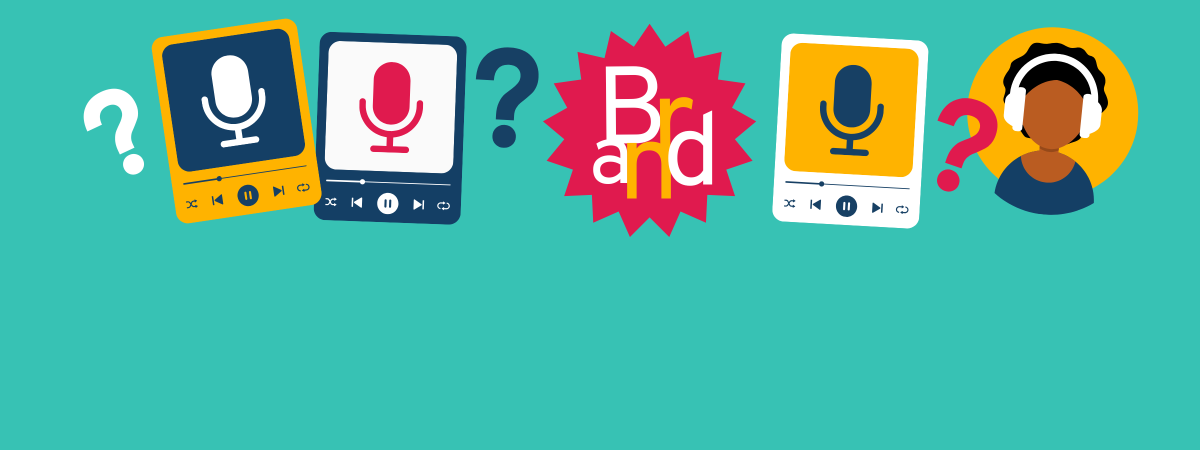Paul Riismandel
Your brand is adding podcasts to the ad mix, but some of your stakeholders are asking questions about brand suitability and safety. How do you know if a podcast is suitable for your brand?
There are any number of standards, guidelines and tools that can use to help answer this. But what’s the underlying question? Who really determines what content is brand suitable?
The podcast consumer, that’s who.
Ultimately, when considering brand suitability or brand safety, you’re concerned about how the consumer will perceive your brand based upon its association with the media it supports and sponsors. If a consumer objects to the content – whether it’s the topic, talent or opinions– the worry is that a negative reaction will brush off on the brand.
It’s a legitimate concern. Brand reputations are painstakingly built, and nobody wants to see them erode, or even worse, contend with a public relations nightmare because a show you sponsored went off the rails.
And it’s true that early on in commercial podcasting the medium had a reputation for being freewheeling and unpredictable. Without a track record of results and ROI, some brand advertisers were slow to warm up.
A decade later the medium has matured, reflected by the respected global brands now dominating the list of top advertisers. Most hosts and publishers understand and deeply respect the trust relationship between advertisers and audiences and take care to preserve it. They’re able to consistently balance the freewheeling nature – something audiences value highly – with their responsibilities to all stakeholders.
At the same time, most brands have come to recognize the unique nature of podcasting. As a niche on-demand medium, the audience knows what to expect from their favourite podcast. Unlike social media for example, they are much less likely to be confronted by content they would find objectionable.
All that said, many brands still want or need verification.
Since brand suitability relies on the consumer’s opinion and response, how do we get that verification?
We ask the consumer.
Survey methods, including brand lift, are an often overlooked way to assess how suitable a podcast is for your brand. That’s because you get direct, unvarnished opinions and responses to both the show’s content and your brand.
We use two metrics to get this data: brand fit and “halo effect.”
For brand fit, we ask a straightforward question like:
“Given the topics covered in [this podcast], how well do you feel that [the brand] fits as the sponsor of the podcast?”
A brand (and podcaster) is looking for respondents to say it’s a “good” fit, but even a neutral response is a positive sign for brand suitability. A rating of “poor” is the warning signal.
Edgy Pop Culture Podcasts: Suitable?
Let’s take a real-world example. We recently tested an automaker’s campaign on some pop culture podcasts with hosts unafraid to take on hot topics with language you won’t hear on broadcast media. Of course, that’s what their tuned-in and diverse fanbase loves. The brash and uncensored talk might give some brands pause, but it’s all part of the package if you want to reach their valuable audience.
Overall 82.5% of listeners said the brand was a fit, with most saying it was “a very good fit.” A small portion (16%) was neutral, leaving only a tiny number (1.5%) who disagreed.
The listeners spoke loud and clear: the edgy pop culture shows were suitable for this brand.
An increase in brand favorability, or “halo effect,” is the indicator that the podcast isn’t just suitable – it enhances the audience’s opinion of the brand. To measure this, we ask them:
“Does [the brand’s] sponsorship of this podcast make you feel more or less favorable toward that brand?”
A supermajority of the pop culture shows’ listeners (69%) said, yes, sponsorship made them feel “somewhat” or “much more favorable” to the brand. Like brand fit, a neutral rating is still a positive sign for suitability, so with 29% saying there was “no change” in their opinion, the sponsorship was at the very least seen as safe for this audience, and did no harm to the brand. In fact, most listeners said it had a very positive impact on their feelings about the brand.
Integrating brand lift surveys into your podcast ad measurement yields benefits beyond telling you how a campaign moves the needle on metrics from awareness to purchase intent. A brand lift study can also verify the outcomes of any brand safety and suitability tools used in your planning and buying by providing a temperature check on how the association is affecting consumers’ opinion of your brand.




